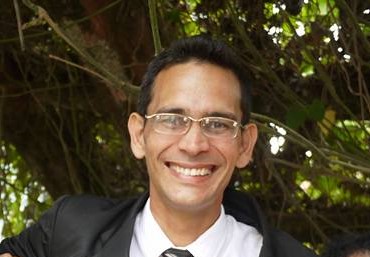The high price to be paid for defending religious freedom in Cuba

Ricardo Fernández Izaguirre is a Cuban religious freedom defender who was arbitrarily detained on Friday 12 July by state security agents after leaving the headquarters of the Ladies in White in Havana where he had been documenting violations of freedom of religion or belief (FoRB). He spent a week in detention, the first four days of which he was completely incommunicado and unable to make or receive contact from family or friends.
On 19 July Ricardo was released. In this interview he details his experience, and explains why he will continue to stand up for FoRB in Cuba despite his recent imprisonment:
The work of defenders of freedom of religion or belief (FoRB) in Cuba is a long road which includes disappointments, such as when victims refuse to report their experiences, and government repression, as political police persecute, attack, harass, and imprison those who try to uphold human rights.
But the sincere gratitude of those who see their cases resolved, and the profound conviction that God supports every step we take, bringing hope, like sheep surrounded by wolves (Matthew 10:16) is what can be found at the end of this road.
On 12 July I experienced this government repression in its utlimate form, when I was imprisoned upon finishing documenting a case and as I was leaving the victim's house. It was the first time that a pair of handcuffs closed around my wrists. For the first time I saw the reality of Cuba's prisons from the inside, and I was horrified at the mistreatment and dehumanisation that the prisoners suffer.

I lived the desolation produced by uncertainty: my family didn't know where I was. My second eldest daughter, who was waiting to spend the holidays with me, would be disappointed, and all of my personal plans had crumbled. But despite this, the best was that I saw that God was there with me and I was able to share my testimony with my captors as well as those who found themselves imprisoned along with me.
This experience gave me greater strength to continue defending FoRB, because the government cannot separate us from God, even if it imprisons our body.
In Cuba, the defence of FoRB is more important than ever, because these violations continue to be relatively unseen in comparison with those of other human rights - violations of which are widely reported by different specialised agencies and organisations in and outside of Cuba.
The government has tried to restrict FoRB by intimidating leaders of congregations who avoid reporting violations out of fear of losing privileges like the right to invite foreigners to preach, and access to humanitarian aid, construction licenses, or government permissions to organise processions and meetings in public places.
When it comes to pastors who dare to express their disagreement with the continued violations of FoRB, the government prevents them from leaving the country, demolishes their churches, and threatens their congregations so that they leave the church, slowing its growth.
This method of pressuring congregations is based on the fact that for 60 years, the Cuban educational system has taught that religion is a tool for capitalist exploitation and is at the service of supposed foreign powers which seek to destroy the country. This communist indoctrination has resulted in the population of Cuba being afraid to express their faith for all these years. For this reason, members of churches which the government has declared to be illegal are easily intimidated when they are invited for supposedly friendly chats by those who represent the authorities.
Another of their methods is to slander church leaders, and if this doesn't work they move to threatening church members with expulsion from their places of study or work. The majority of these threats take place unobserved because new believers are often people who identify with the state ideology in one way or another or they are financially dependent on the regime, so they choose to keep quiet instead of reporting what has happened to them.
In all of these situations, one of the pillars of CSW's work in Cuba is the creation of bridges of trust so that victims feel safe when it comes time to denounce the facts, and, once cases have been documented, we can proceed to stand with the victims, providing spiritual, moral and legal support.
Ricardo Fernández Izaguirre is a Christian Solidarity Worldwide partner in Cuba.











